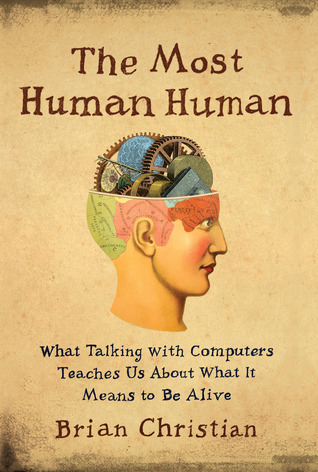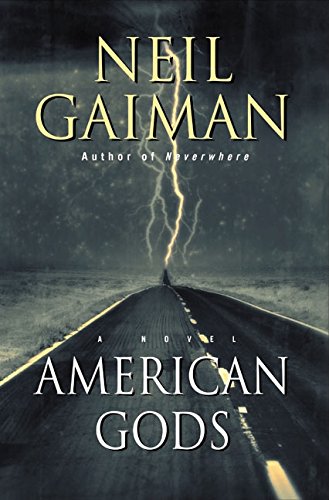I heard Brian Christian on a recent podcast in my feed earlier this month, talking about computer science, decision making and other subjects. His more recent book, 2016’s Algorithms to Live By wasn’t available at my local library, but this 2011 book about the Loebner prize was, so I picked it up instead. I’ll admit, it took me a while to get into it. I had other things in my reading list I was trying to work through simultaneously, but once I got through those and was able to spend some more time with it I did enjoy it.
The Most Human Human is a chronicle of Christian’s experience in the 2011 Loebner prize, a Turing Test competition where chatbot programs and their human confederates compete against each other, each trying to convince a series of judges that they are the most human. Christian tells his story of trying to prepare for the competition, trying to figure out what he can do during each five minute round of chatting to convince the judges that he is not a computer. Within this story, Christian covers the history of computer science, from Charles Babbage and Ada Lovelace, to the first chatbots like ELIZA, onto more advanced concepts like compression algorithms.
Christian has a dual degree in both computer science and philosophy, as well as a MFA in poetry, and he puts all of this to use in the book. There’s a lot of discussion about art, music and poetry, as one would expect, and lots of quotes to break up the various sections. He spends a good deal on chess, mainly as it relates to computer science and the Kasparov vs. Deep Blue matches. The book is informative without being jargony. I was fairly familiar with most of what he covers in the book, but I was pleased that the book was more in depth about general computing concepts that just about the details of the Loebner prize competition, which was probably one of the lesser interesting parts of the book.
The book is only eight years old, but I fear it doesn’t really age well due to the prevalence of discussion around the pick-up artist (PUA) scene, notably Neil Strauss, Mystery, and the techniques employed by them like negging and neurolinguistic programming. I was involved in the PUA scene, around the mid-aughts, and it’s notable how that subculture became aggressively toxic. It’s quite a distraction in this age of #meToo and incels and the like. It’s also apparent that Christian really liked Dave Matthews Band when he was writing this book, but who am I to judge.
One of the things I really liked from this that Christian writes is about what he terms the anti-parliamentary debate, modeled as the antithesis to the Lincoln Douglas debates which are typical of primary and secondary school debate clubs. Instead of an adversarial process, opposing sides have to come together to work on joint legislation, which they then present to the judges independently, each side explaining why the legislation supports their position. These collaborators are scored jointly, with individual scores based on joint participation scores across several rounds. It’s a shame it hasn’t taken off.
As someone interested in artificial intelligence and machine learning, this book is a good read. It’s right in the sweet spot for general audiences and people like myself that have more of a technical background. A mix or art and science, if you will. One of the takeaways that is going to stay with me from reading this is the ever-moving target that we humans present to these questions around synthetic minds. The goalposts keep moving. Each time a computer beats us at a particular task, that task is no longer seen as a creative endeavor. First checkers was solved, and we’ve been beaten by computers in chess, now Go and other games. But these defeats ultimately allow us to determine what is it that separates us from the machines, that makes us uniquely human? And ultimately, Christian’s book is about his mission to discover those things, and is what the reader is left thinking about afterward.








